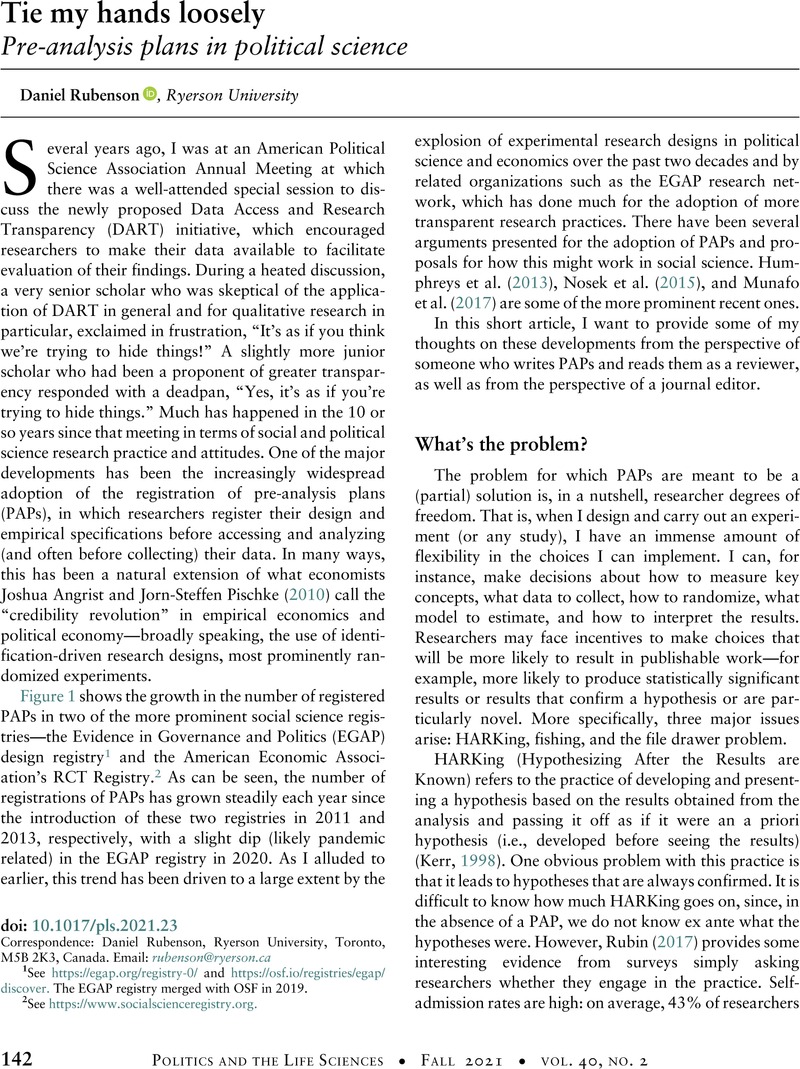Crossref Citations
This article has been cited by the following publications. This list is generated based on data provided by Crossref.
Mansell, Jordan
Harell, Allison
Gidengil, Elisabeth
and
Stewart, Patrick A.
2021.
Psychophysiology, cognition, and political differences.
Politics and the Life Sciences,
Vol. 40,
Issue. 2,
p.
137.
Murray, Gregg R.
2021.
Editor-in-Chief’s introduction to the issue.
Politics and the Life Sciences,
Vol. 40,
Issue. 2,
p.
135.
McDermott, Rose
2022.
Breaking free.
Politics and the Life Sciences,
Vol. 41,
Issue. 1,
p.
55.
Murray, Gregg R.
2022.
Editor-in-Chief’s introduction to the issue and volume 40 in review.
Politics and the Life Sciences,
Vol. 41,
Issue. 1,
p.
1.
Brown, Mitch
and
Sacco, Donald F.
2024.
Interdisciplinary lessons and recommendations for the evaluation of replicability in behavioral sciences.
Politics and the Life Sciences,
Vol. 43,
Issue. 2,
p.
235.



